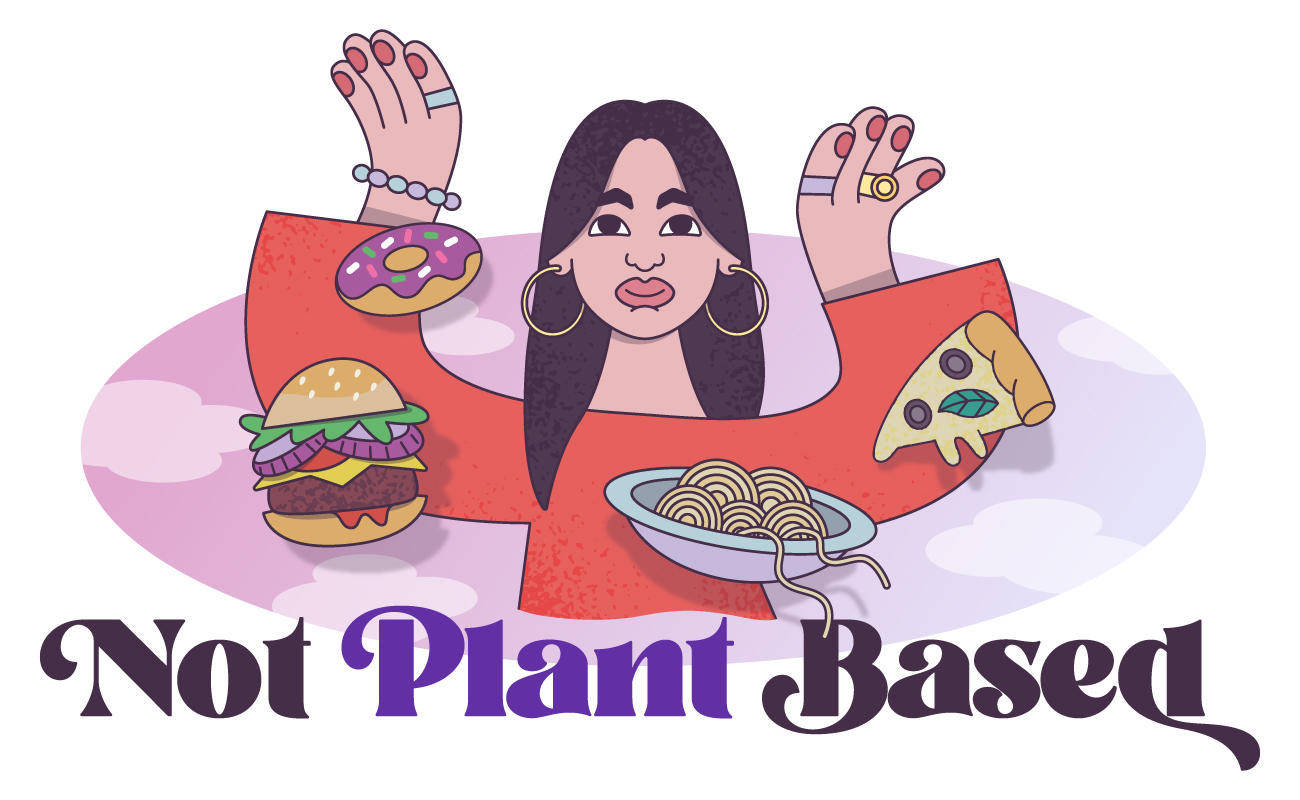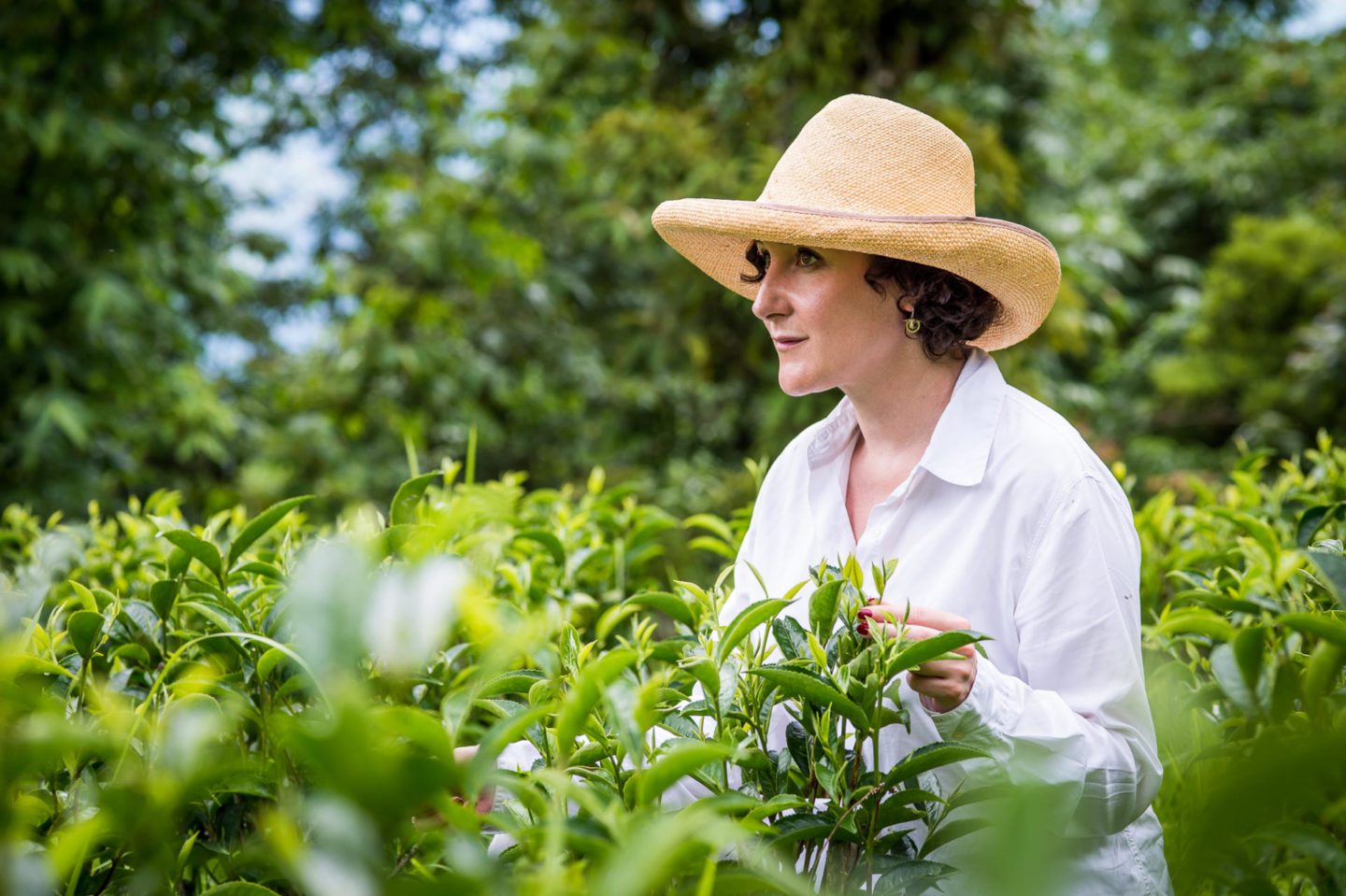
It was out of the question for me to run a food-focused website and omit the mention of tea. Out of the question. Tea has been central to my daily routine and heart ever since I learned how to boil a kettle, and it would be a deep injustice to ignore all the beverage has done for me over the years.
Tea remained a staple part of my diet throughout my eating disorder, sometimes, and rather unfortunately becoming a meal replacement rather than a supplement. Today, tea is still a huge and beloved part of myself, but you’re more likely to see me drinking my Earl Grey through a Twix in more recent times than with Splenda.
I’ve been biding my time with this piece, and mostly because I couldn’t find anyone I wanted to talk to about it. But then, a revelation! I came across a woman who goes by the name of The Tea Lady on Twitter, and second on my list of suitable interviewees to the Mad Hatter, I knew I had to speak to her.
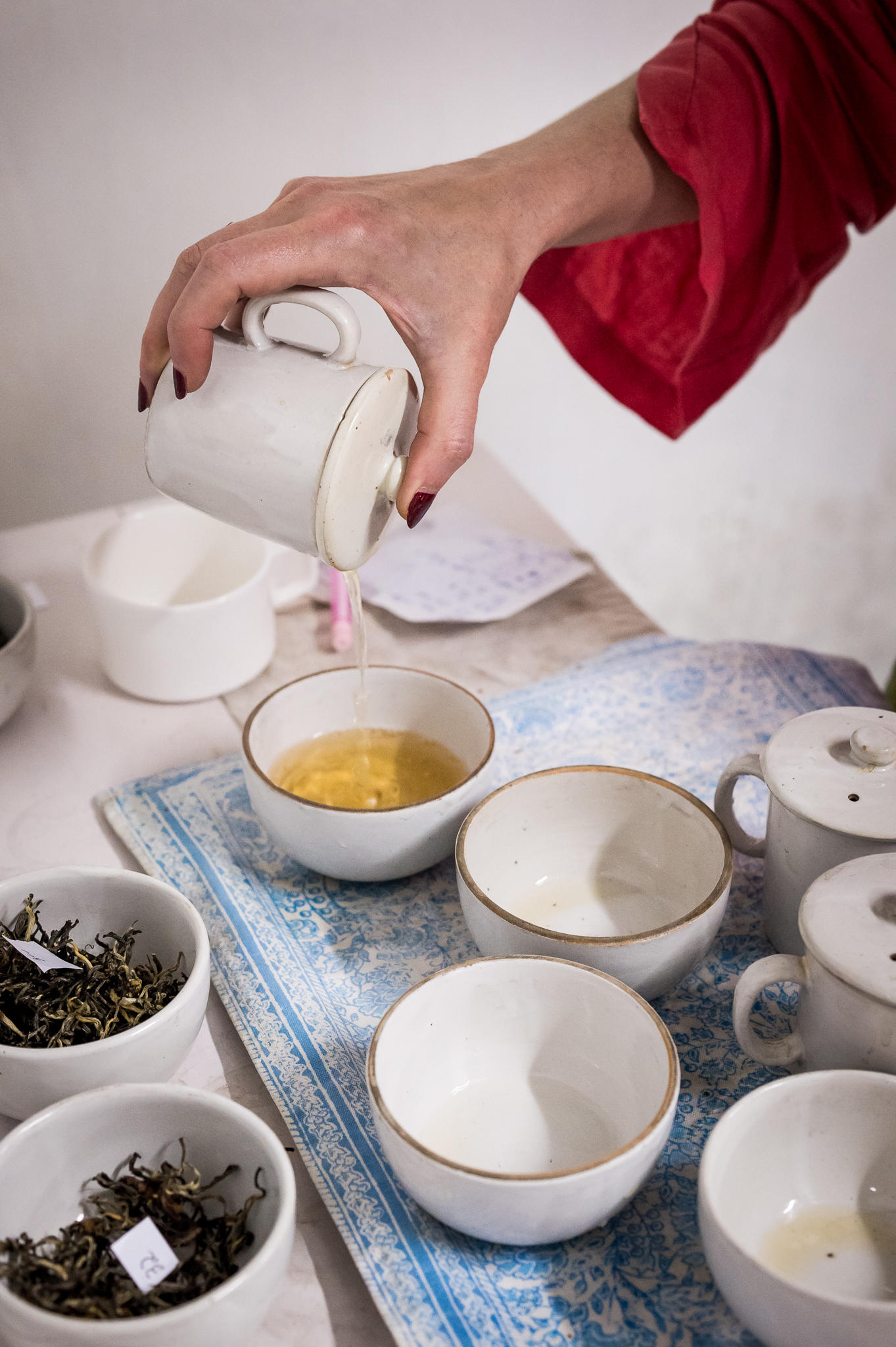
Henrietta Lovell founded the Rare Tea Company in 2004, which sells loose leaf tea with a focus on quality and a fair relationship with the farmer from which it came. You can find their tea in some of the best restaurants, hotels, coffee houses and bars across the world.
But at the risk of over-milking the work that she does, I spoke to Henrietta about her love of tea, her company and the perfect snack to accompany a brew.
How did you get the name Tea Lady?
People really do call me the Tea Lady. I’m not really sure where the tea-lady ends and I begin. It’s what I do. It’s who I am. Tea, I mean, not pushing an urn around an office.
I don’t live up to that image of a Tea Lady, in a tabard apron, her hair in rollers covered by a scarf, making tea for important men at work at their desks, far too busy to get up and put the kettle on.
What exactly do you do?
I travel the world looking for the most delicious tea I can from the best people. I only buy direct from farmers and only from farmers who use sustainable farming practices – both for the land and the people who live and work on it to thrive.
Could you explain what the Rare Tea Company is? What makes you different?
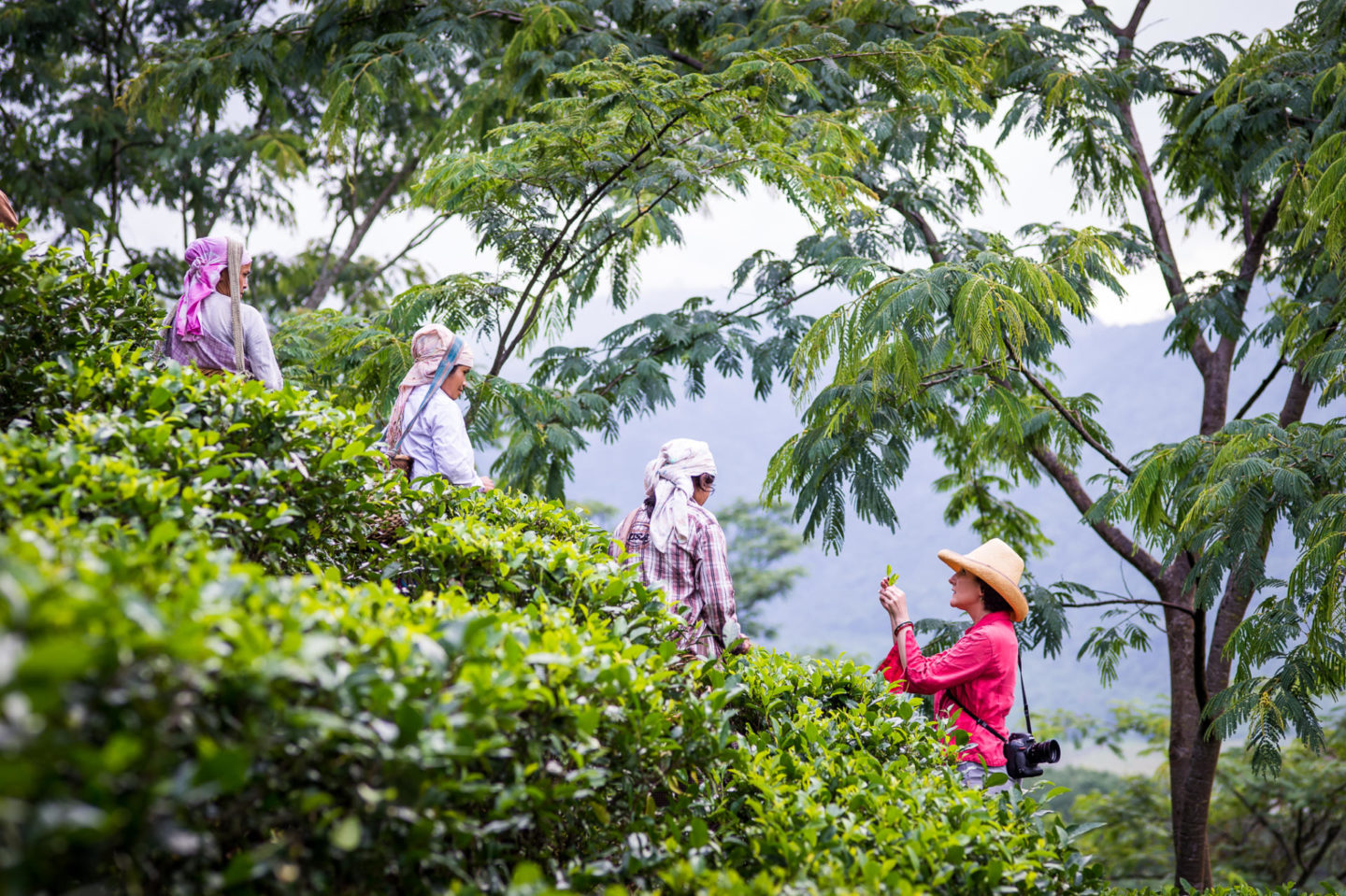
We have the best tea in the world. I know, I know, I would say that.
But please forgive me for showing off a bit: We supply Noma in Copenhagen, Claridges in London. Momofuku in NY, Tartine in San Francisco, I could go on and on. We supply lists of 3 Michelin Star restaurants, and famous chefs who love and work with our tea. And 2* and 1* and also brilliant no stars, cafes and bars, but always places that really care what they serve and want to give their customers the most delicious things they can. If those people chose our tea it must be pretty good.
The Direct trade model is crucial to who we are and what we do. We buy direct, paying the farmers the prices they ask and need to survive and grow, and guarantee that price. We build strong, responsible relationships of trust and respect. Some of the farms we’ve been working with since we started back in 2004.
We also sell direct to you- online, direct to retailers (mostly Waitrose and Ocado) and direct to our restaurant partners. Relationships matter at both ends…from leaf to cup.
Have you always loved tea?
Haven’t you? And then, when you discover what lies beyond the bag, it gets so much deeper. Every time I visit a new farm and discover a truly extraordinary new tea I fall a bit more.
I truly adore tea.
What, to you, makes a really good brew?
Good loose leaves. A teabag is convenient but the most sublime teas are made from hand-crafted leaves that swell and expand in hot water- not fine dust.
The “posh” pyramids dangling menstrually on strings might be expensive and have leaves inside but there is not enough room for leaf-tea to infuse properly. Tea can increase more than 20 times the dry weight if you allow it some space. And they might call themselves “silken” but they are not made of silk. Mostly plastic. I’m really not keen on bleached paper, glue, staples and really, really not plastic infusing in my hot water.
Take a bit of care with your leaves.
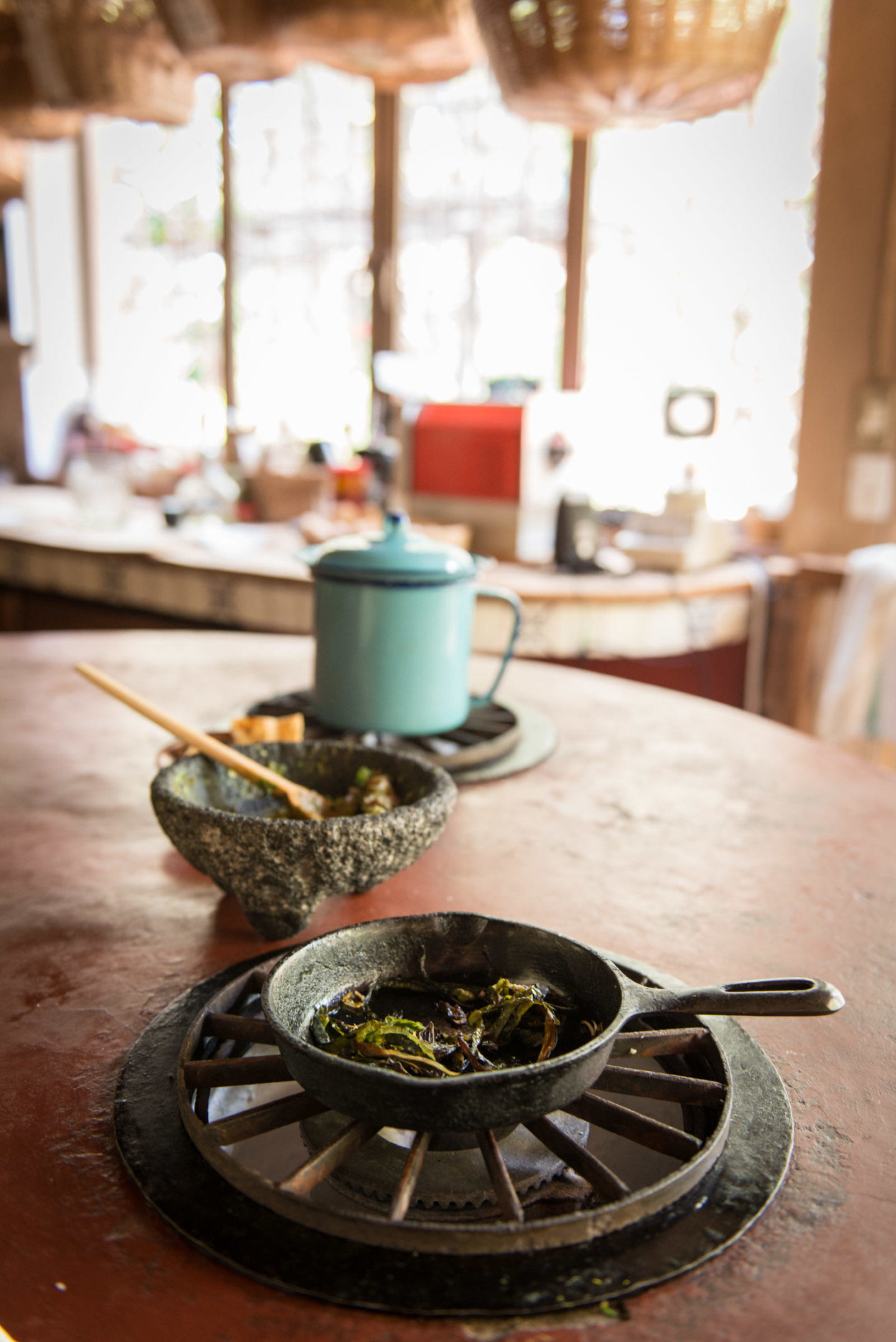
Not a coffee fan then?
I’m a huge coffee fan. I can’t drink it when I’m working because I’m already way too jacked up on all the caffeine I drink – and coffee is so strong in flavour – it fills the palate and I spend my days tasting and testing and blending. But on a Sunday morning I really enjoy coffee.
Milk before the tea or tea before the milk? Should there be milk at all?
It’s entirely up to you and the way you like it!
Do you have a special mug/tea set which you drink your tea from?
Many. I love beautiful things to drink my tea out of. I prefer a fine lip so I really like bone china cups. It’s like wine – it just taste better out of a delicate wine glass rather than a fat tumbler.
What do you like to eat with tea, if anything? A few digestives?!
That’s a huge question. I’ve worked on pairing menus with chefs and restaurants around the world for over a decade. So many teas, so many dishes the answer is myriad. It’s a bit like asking a sommelier what food goes with wine.
But yes – I made an English Breakfast blend called Speedy Breakfast which is amazing with a digestive.
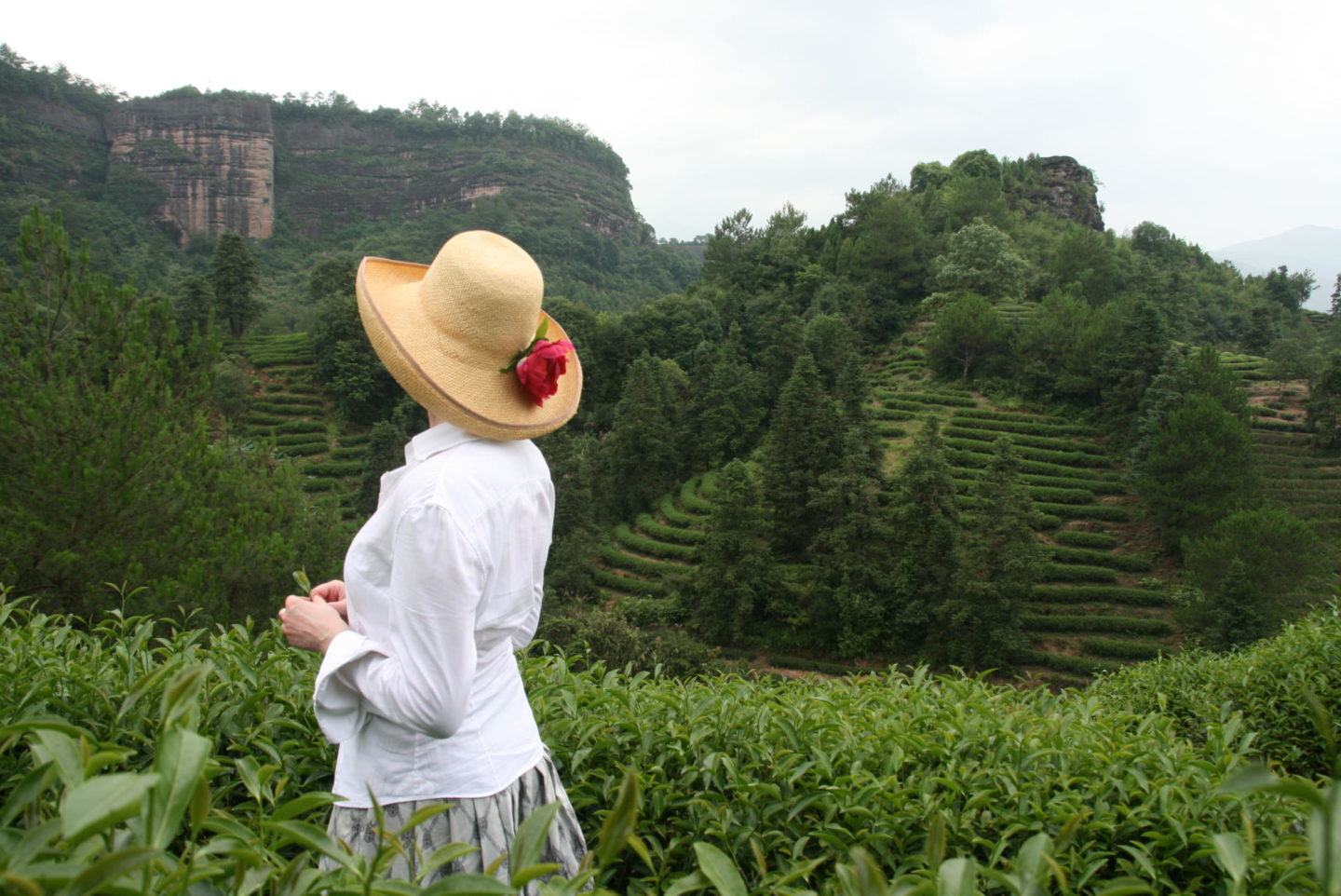
Why is fair trade important to you and your brand? What are the things you do to ensure an ethical product?
Another HUGE question I could write 20,000 words on this. I’m just finishing a book for Faber & Faber about my adventures in tea that explains a bit about the terrible exploitation of the developing world by the mainstream tea industry. Fairtrade is not a silver bullet that can solve everything. A fairer trade might help.
If we are content with cheap, industrial tea nothing will change. But if we were prepared to pay for quality, to buy tea like wine, for its exquisite flavours, paying more for the best stuff and appreciating its value, then tea gardens might thrive like vineyards. We could change the world. In a small way, perhaps, for us, but it could have a massive impact.
There is always something we can do, and Rare Charity would be a good place to start. I know some of the problems in the word right now seem insurmountable and terrifying – but they will only get worse if we bury our heads in our hands. Last year I started a charity returning a direct % of our revenue to our partner farms for tertiary education scholarships
What do you think about store bought tea? Does it cut the mustard?
I have a huge problem with all the flavourings. There is no strawberry anywhere near a strawberry tea even if it says “natural” flavouring. Flavourings are made in labs. They don’t have to tell us exactly what they are because they are trade secrets-but it’s a pretty creative use of the world “natural”.
You don’t need to put any flavourings on good tea to make it taste good.
If you buy our tea in Waitrose it will cut through steel and bullshit and make your heart sing.
All these words I’ve just written are just words. If you actually try the tea there is no going back.
If you had to decide between chocolate or tea, what would you choose?
Much as I lie chocolate and I would miss it badly- there is no competition.
A life without tea would be a torture I couldn’t endure.

